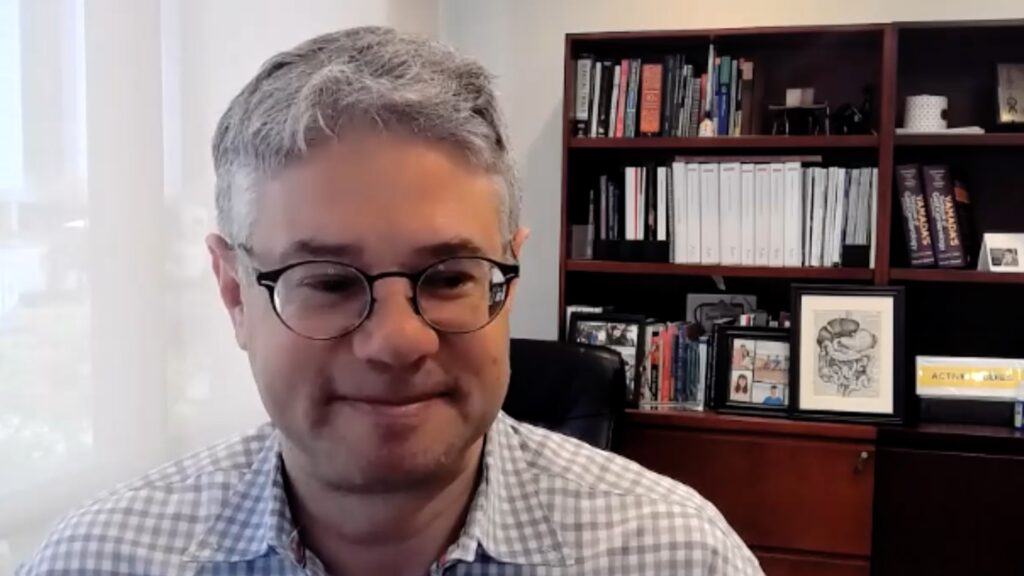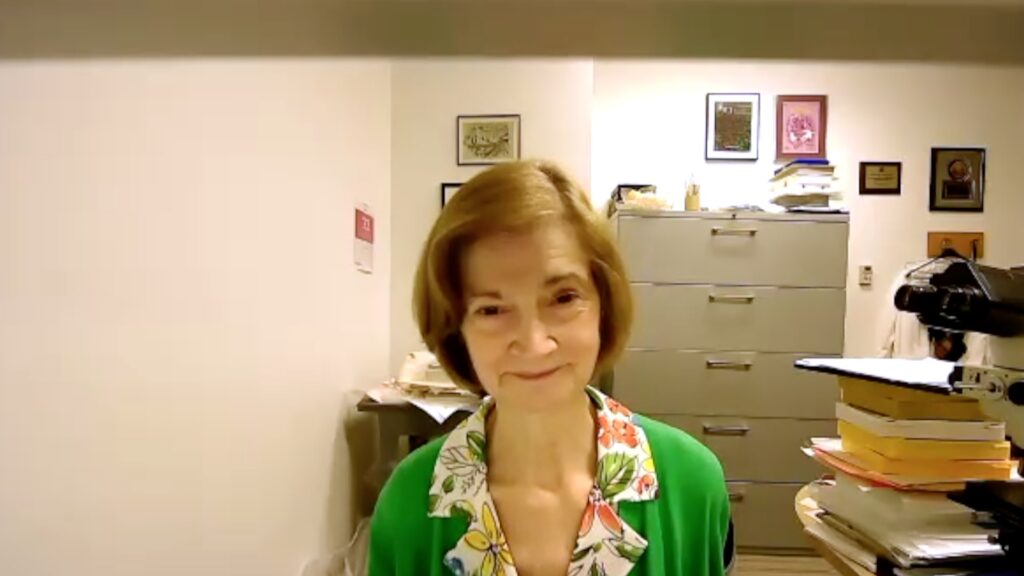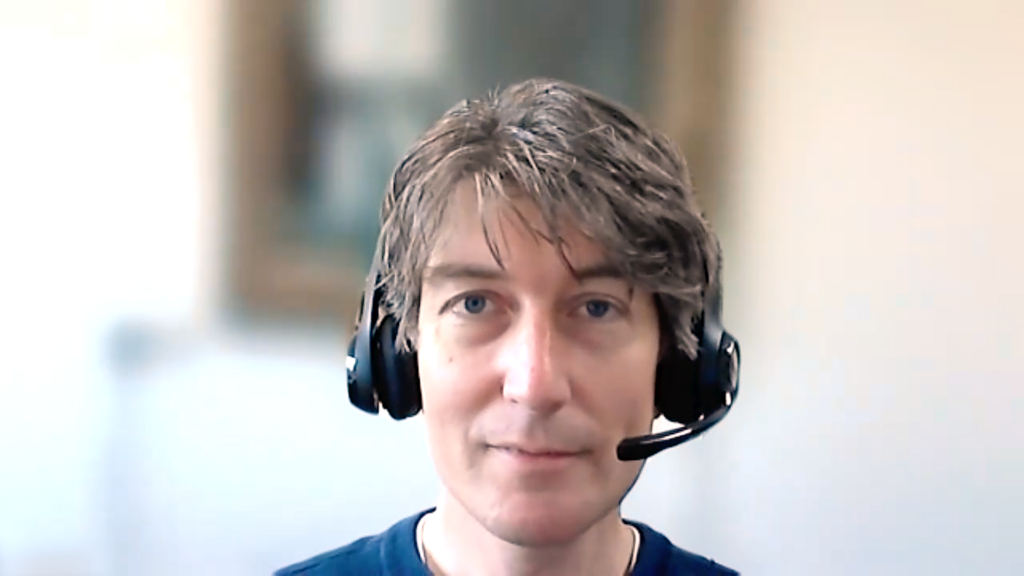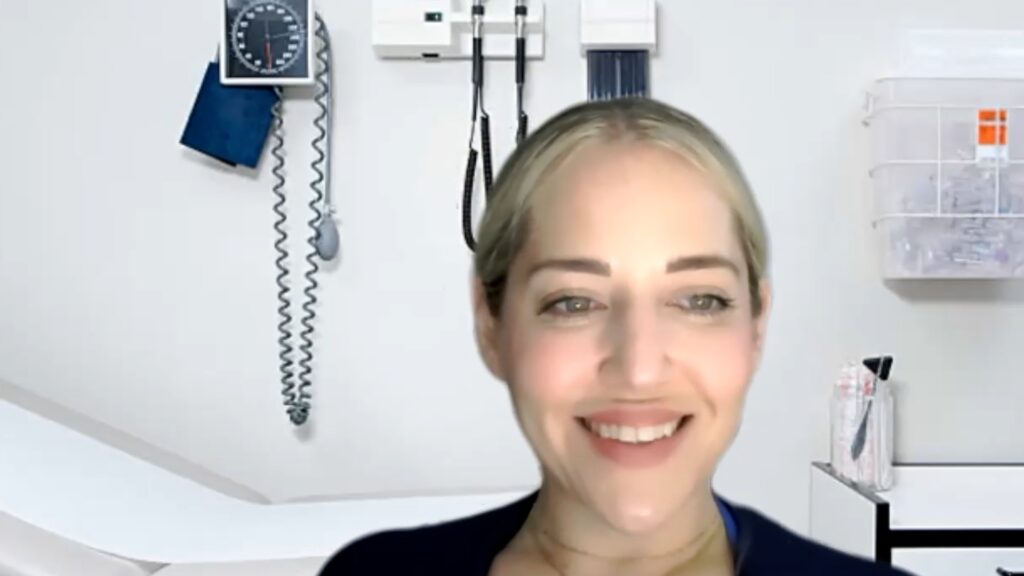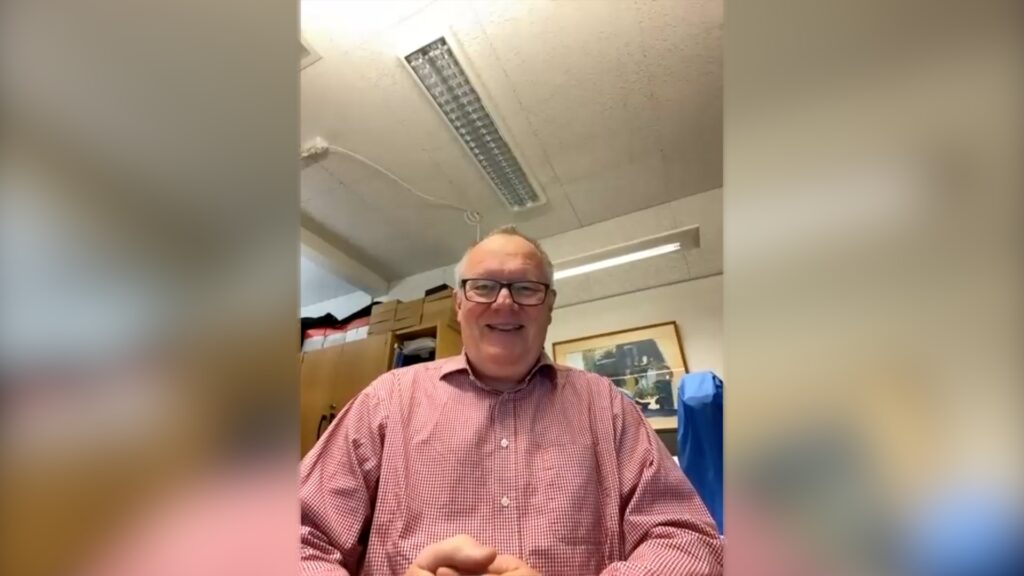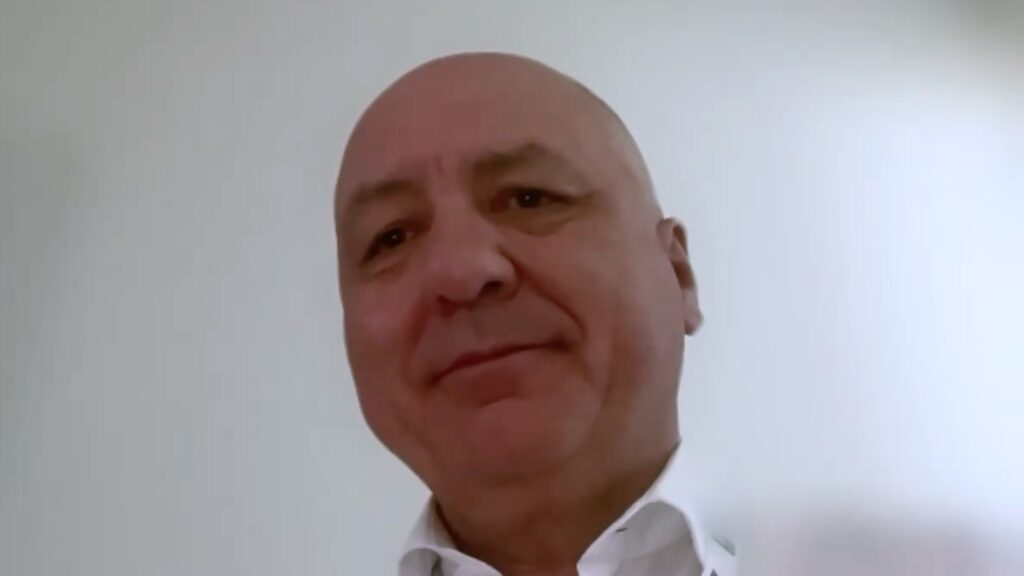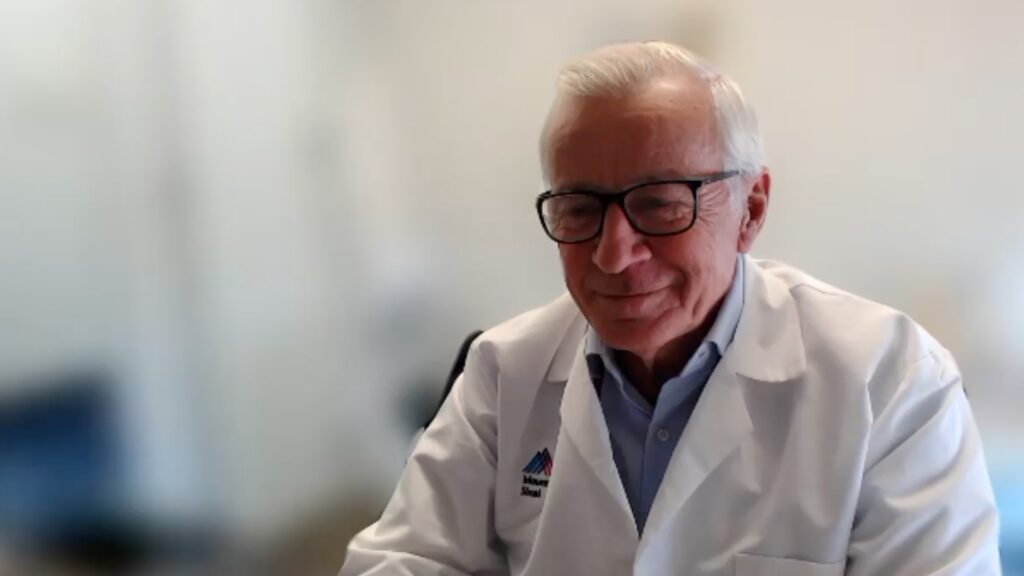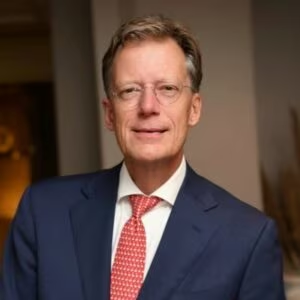 Each year, the United European Gastroenterology (UEG) Lifetime Achievement Award honours an outstanding individual whose contributions have significantly improved the lives of those living with gastrointestinal disorders and whose work has made a profound impact on the myUEG Community.
Each year, the United European Gastroenterology (UEG) Lifetime Achievement Award honours an outstanding individual whose contributions have significantly improved the lives of those living with gastrointestinal disorders and whose work has made a profound impact on the myUEG Community.
This year, Prof. Paul Fockens, received the 2024 Award and joined ranks with this renowned group of celebrated leaders. Over the last 30 years, as a Professor of Gastroenterology & Hepatology at the University of Amsterdam and now as a consultant-gastroenterologist at Waikato Hospital, Hamilton, New Zealand, Prof. Fockens has had a transformative impact on gastroenterology, particularly in the field of gastrointestinal endoscopy.
Prof. Fockens’ groundbreaking research began with endoscopic ultrasound and expanded to transmural endoscopy and natural orifice transluminal endoscopic surgery (NOTES). Additionally, he advanced upper gastrointestinal motility therapies, early colonic tumour detection and colorectal cancer screening.
Beyond his research, Prof. Fockens has championed education and mentorship globally, mentoring over 50 PhD trainees and inspiring future leaders. He led initiatives like Young GI within UEG, chaired the European Postgraduate GastroSurgical School and the Dutch Gastroenterology Training Committee, and organized major conferences like EUS LIVE Amsterdam. In addition, he served as UEG Vice-President and President from 2016 to 2019, playing a key role in developing the 2019–2022 Strategic Plan, which emphasized research, standards and collaboration. During his tenure, he also prioritized diversity and equality and oversaw the commissioning of the pivotal White Book 2.0 study
Following his recognition, we sat down with Paul to congratulate him on his award and discuss his professional journey.
Q. What do you consider to be the key moments or milestones that have shaped your journey in gastroenterology?
There are probably many key moments, but one that truly shaped my career was meeting Prof. Guido Tytgat back in 1989. I had just moved from a small hospital to the Academic Medical Center (AMC) at the University of Amsterdam. At the time, he was already a legend in the field and at the forefront of innovation. He was a very open-minded individual and always encouraged us to try new things. He could be tough (he pushed us hard and didn’t easily take no for an answer) but this pushing also brought many opportunities. Looking back, I ended up staying there, at the same hospital for the next 35 years, so it was definitely a key milestone in my career.
Q. Where do you feel your work has had the greatest impact on patient care?
If you look at my career and research, the work that has had the greatest impact has definitely been in the field of endoscopy. I was really fortunate that, when I started out, just before joining the AMC, endoscopy was still in its early stages. At that time, it involved using a large black tube that you had to physically look through to perform procedures. You couldn’t share those images directly; if you saw something, you could take a photo, but then the film had to be developed etc.
A few years later, we entered the era of video endoscopy. Suddenly, you could share images, review them, and document procedures more effectively. It was still done with tape recorders and large machines, but it was a significant leap forward. Fast forward to today, and the advancements are remarkable. The image quality in modern video endoscopy nowadays is spectacular. There are so many diseases, lesions, and polyps that, 25 years ago, we simply couldn’t detect. Now, we can identify small lesions, as tiny as 3–4 mm, and take action to address them. Sometimes, we may do a little too much, but we learn in the process.
Looking back, it really has been my work in endoscopy, firstly for the advancements made in improving diagnosis, to its use as a therapy, and now as a tool that can sometimes replace surgery. Endoscopy has truly been the red line running through my career.
Q. What aspect of your career have you most enjoyed?
Meeting people and working together has always been a highlight for me. At the AMC we have always had a great team. Everyone worked together, sharing ideas and collaborating, with hardly any competition between us.
Outside of the hospital, and thinking globally, it has been a very similar story. Endoscopy wasn’t just developing in the Netherlands; it was evolving everywhere. Through that, I got to know people from all over the world, many of whom became good friends as we worked on research together. Looking back, I probably travelled a bit too much—flew a bit too much for the good of the planet—but that was just how things were back then.
You’d go to a meeting in South America to present what we were doing in Amsterdam and run into someone, maybe a German colleague, that you’d meet three or four times a year. You’d say, “Oh, there you are again!” Those connections have lasted, and I still have great friends from that time.
Q. As a mentor and advocate for young GI initiatives in the UEG, what advice would you give to early-career physicians considering a future in gastroenterology?
Firstly, I’d say go into gastroenterology because we’re not halfway done! There are a lot of new things happening. We are much stronger in terms of being able to provide medical treatment for inflammatory bowel diseases and many other conditions, and there are just so many different areas in the field to explore.
I think the most important thing is to go in with an open mind. Don’t start out thinking, “By the time I’m 28 or 30 years old, I’m going to achieve this or that,” or, “In twenty years, I want to solve pancreatitis.” That obviously could be good, but I think you should also be prepared to grab opportunities and be willing to go slightly different ways. Of course, when you get a little bit older, you should try to gain a bit more focus.
When you begin your specialization—whether it’s cardiology, gastroenterology or another field—keep an open mind. Take the time to explore what you truly enjoy while also noting where the opportunities lie. Don’t just sit behind a book thinking, “I’m going to solve this or that.” Let your curiosity and interests guide you, along with the opportunities available to you.
My last piece of advice: don’t be afraid to occasionally take a different track. I spent many, many years of my career at the AMC, and in the end, I think one of the greatest decisions we’ve made was to move out to New Zealand. I could have stayed two more years—not as the chair anymore, but continuing until retirement—but it was wonderful to reach a point in my career where I could just say, “Why don’t we pack our suitcases? We’re good, we’re happy, we’re healthy.
Q. What does receiving the UEG Lifetime Achievement Award mean to you?
This is a bit of a difficult question to answer because it’s not really something you work for. But when the European Society of Gastroenterology phoned me and asked if I would come back from New Zealand to accept this Lifetime Achievement Award, of course it was a YES. I said, ‘If that happens, it’s only 20,000 km, so I’ll definitely come.’ It is a big honour to receive this award, but it was never a goal, it just happened, and I’m just so extremely grateful.
Related article:
Pouw RE and van Hooft JE. Paul Fockens: Awardee of the 2024 United European Gastroenterology Lifetime Achievement Award. United European Gastroenterol J. 2024 Aug 26;12(7):982–983. doi: 10.1002/ueg2.12652
***
SIGN UP to TouchIMMUNOLOGY!
Join our global community today for access to thousands of peer-reviewed articles, expert insights, and learn-on-the-go education across 150+ specialties, plus concise email updates and newsletters so you never miss out.
REGISTER >>>

***
Support: No funding was received in the publication of this short article.
Interviewer: This interview was conducted by Gina Furnival, Senior Editorial Director
Cite: Fockens P. A career in endoscopy: 5 insights from the 2024 UEG Lifetime Achievement Awardee Paul Fockens. touchIMMUNOLOGY. 7 January, 2024.
More content in the field of Digestive Disorders

